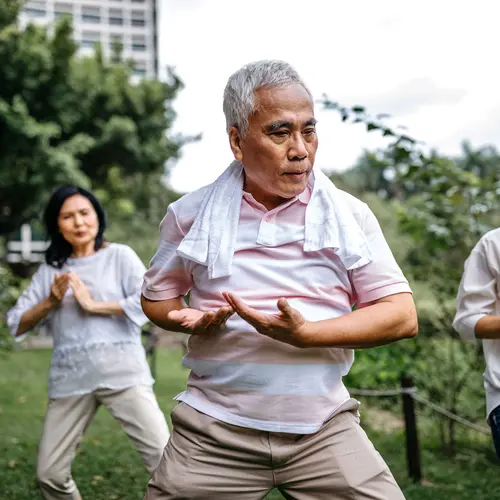Admit it, you’re a little jealous of people who stockpile their sick days. While you sneeze and cough your way through cold and flu season, they show no signs of even a sniffle.
Don’t just envy them. Steal their secrets for a stronger immune system and a healthier life.
1. Get a move on.
Exercise is “the single most important thing you can do to reduce sick days,” says David Nieman, DrPH, director of the Human Performance Lab at Appalachian State University.
Although scientists aren’t really sure why, research suggests that consistent exercise gives your immune system a boost. It might be that moderate heart-pumping workouts spark a rise in the germ-fighting cells in your body -- or that they lower stress hormones that can dampen your body's defenses.
You don’t have to live at the gym to get these perks, either. “People who exercise for 30 to 60 minutes most days of the week have a 46% reduction in the number of days of illness compared with those who didn’t exercise,” Nieman says.
Can’t carve out a half-hour or longer block in your day? Divvy your exercise up into shorter sessions. “As long as each activity is at least 10 minutes you’ll reap the benefits,” Nieman says.
2. Wash your hands -- a lot.
Kelly Baez, a health and weight-loss coach in Columbus, GA, claims she never gets sick. Part of her stay-healthy MO? The stash of hand sanitizer she keeps in her gym bag to use between hand-washings.
And for good reason: Your fingertips are home to some serious bacteria, and research suggests you touch your face -- mouth, eyes, nose -- about 16 times an hour. To keep those germs at bay, wash your hands often with soap and warm water for at least 20 seconds, the CDC says. Hand sanitizer doesn’t get rid of germs as well as a good handwashing does, but formulas with at least 60% alcohol can kill some of them until you can get to a sink.
While you’re at it, consider opting for a fist bump or high five instead of shaking hands. One study found that a handshake transferred nearly twice as many bacteria as the other two.
3. Get it on.
People who have sex on a regular basis may have higher levels of an immune system protein called immunoglobulin A (IgA). Researchers at Wilkes University in Pennsylvania found that college students who got between the sheets once or twice a week had higher levels of IgA compared to students who did it less often.
4. Mix up your meal plans.
Fad diets won’t do your immune system any favors. Instead, eat a wide variety of healthy foods. “There’s not just one specific nutrient or food component that’s linked to staying healthy,” says Jackie Newgent, RDN, author of The All-Natural Diabetes Cookbook. “Instead, it’s about synergy.”
A few tips:
- Build your meal around vegetables. “Aim to fill half your plate with non-starchy vegetables, such as gingery stir-fried asparagus, roasted curry cauliflower, sautéed garlic spinach, fresh tomato salad, or grilled mushrooms -- and always do this first,” Newgent says. Fruits and vegetables are full of nutrients called antioxidants that build up your immune system.
- Drink green tea. It may increase the number of an important type of immune cell, called regulatory T cells, according to one study.
- Try probiotics. A recent study in the British Journal of Nutrition showed that stressed-out college students who got these “good” bacteria had fewer sick days than those who didn’t. Even if they did catch a bug, they recovered faster. You can get probiotics from foods like yogurt -- look for “live and active cultures” on the label -- or take them as pills.
5. Get enough shut-eye.
Americans who said they had very good or excellent health and quality of life slept more -- an average of 18 to 23 minutes per night -- than those who rated their health as good, fair, or poor, according to the National Sleep Foundation.
No surprise. Your immune system needs sleep to keep you healthy. How much? Researchers found that people who log less than 6 hours a night are about four times more likely to catch a cold when they get the virus compared to those who get 7 hours of sleep a night.
If you can’t tame your inner night owl, try this trick: Set an alarm clock at night as a reminder that it’s time to go to bed.
6. Three, two, one, Ohm.
Jessica McFarland, a middle-school science teacher in Philadelphia, comes in contact with 145 13-year-olds every day. “It’s a miracle that I never get sick!” she says. Among her stay-healthy habits: She takes slow, deep breaths whenever she begins to feel stressed. If possible, she takes a moment for a mini meditation.
Research suggests she’s on to something. One study showed that mindfulness techniques like meditation may cut your chances of catching a cold. The participants who practiced meditation also said they had shorter colds and fewer symptoms when they did get sick.

